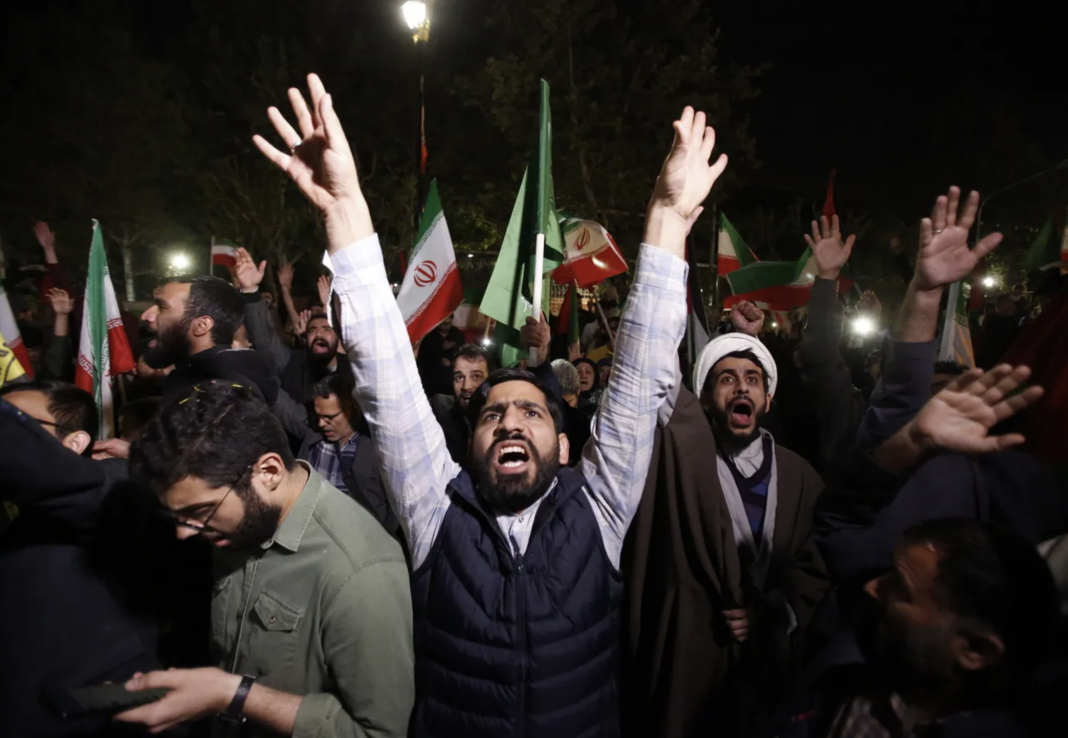On the night of 1 October, Israel announced the start of a limited ground operation in Lebanon. The country’s Defence Army (IDF) said that it intended to eliminate Hezbollah positions along the border. In the evening of the same day, Iran – the main member of the so-called ‘Axis of Resistance’ and Hezbollah’s patron – launched a powerful missile attack on Israel, firing more than 180 ballistic missiles.
Tehran called it a response to the assassination of Lebanese Shiite Hezbollah leader Hassan Nasrallah and Ismail Haniyeh, leader of the radical Palestinian Hamas movement. The air attack, far more serious than a similar strike in April this year, raised the stakes at an already extremely tense moment for the Middle East.
In this piece, Ascolta analyses whether a possible Israeli retaliatory strike will be the beginning of a full-scale war in the Middle East, how this event will affect the price of the region’s main natural resource – oil, as well as how the echo of Middle Eastern events may affect the upcoming U.S. presidential elections.
This Content Is Only For Subscribers
The Iranian strike and the anxious anticipation of a response
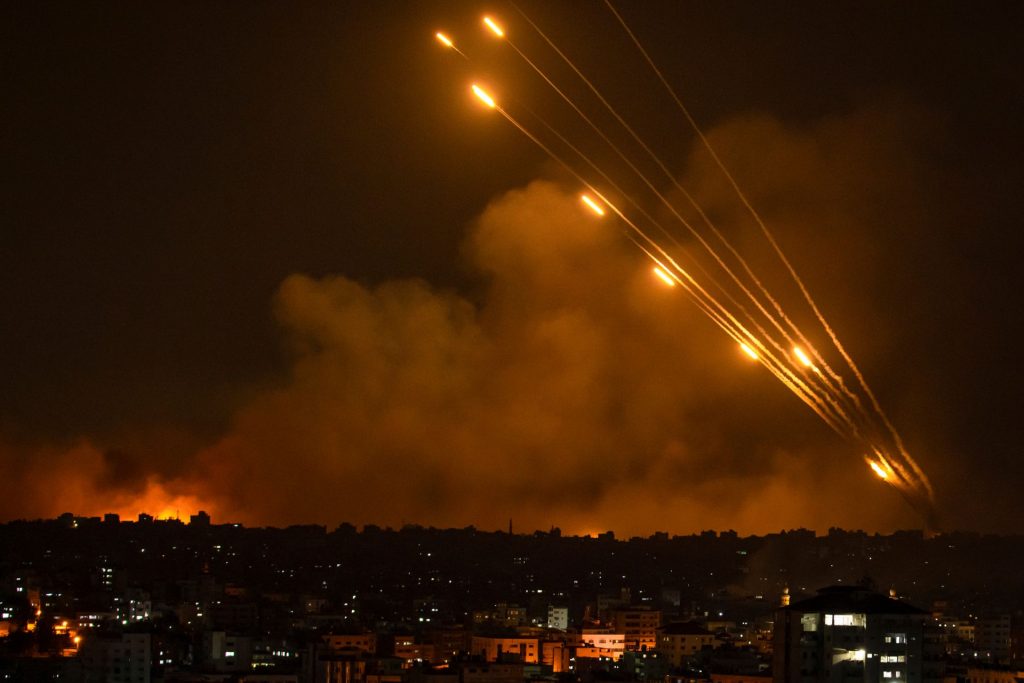
The sight of missiles falling on Tel Aviv on the evening of 1 October was the clearest sign yet that the regional conflict so feared over the past year may have broken out. This is the second Iranian missile attack on Israel in less than six months, but last time the warning came days in advance, involving slow-moving UAVs and cruise missiles with the primary target being a military base in the sparsely populated Negev Desert.
This time, the Iranian attack involved ballistic missiles with a flight time of 12 minutes to Israeli territory, and the targets appeared to include densely populated urban neighbourhoods. This was evidenced by the first videos of arrivals inside Israel, where it was clear that many of the rockets reached some targets on the ground and explosions were seen in urban areas.
Immediately after the end of Iran’s missile attack on Israel, Iranian information resources began to report on its success: 80 per cent of targets on Israeli territory were hit, there was destruction and fires in Israel, missiles hit gas platforms in the area of Israeli Ashkelon, more than 20 Israeli F-35 aircraft were destroyed at the Nevatim airbase. The Israeli media in response was filled with mockery of ‘Iranian fantasies.’
Official Israeli sources reported only one casualty – a Palestinian from Gaza killed by a rocket fragment in Jericho, in the West Bank, and three Israelis with non-life-threatening shrapnel wounds. And the Israel Defence Forces (IDF) press office reassured fellow citizens, saying no IAF aircraft were injured.
According to CNN, several Iranian missiles did break through Israel’s sophisticated air defence systems and landed on military bases. The channel’s military source emphasised that the facilities were not seriously damaged. Another missile, according to the channel, landed near the Mossad headquarters near Tel Aviv. After the missile attack ended, Iran made it clear that there would be no new attacks, unless of course Israel decided to retaliate. This was stated by Iranian Foreign Minister Abbas Araghchi. He also noted that he spoke with his counterparts from Britain, Germany and France, warning: although Iran does not seek war, but ‘is not afraid of it.’
In addition, the Iranian diplomatic chief revealed that he held talks with Lebanese leaders on the possibility of a ceasefire deal with Tel Aviv. He noted that Tehran would support a ceasefire between Israel and Lebanon. ‘We will support efforts made in this direction under two conditions. First, the rights of the people of Lebanon must be respected. Secondly, the ceasefire will take place simultaneously with the ceasefire in Gaza,’ Araghchi said.
It is noteworthy that several sources pointed to the fact that many of the Iranian missiles were apparently without detonating parts and caused little or no damage when they fell. Against the background of such information, the opinion began to form that the Iranian strike on Israeli territory was indeed a warning strike, and its main purpose was to demonstrate the vulnerability of Israel’s air defences.
As The New York Times (NYT) notes, not all of Iran’s leadership was aware of the impending attack. The strike on Israel was carried out exclusively by the forces of the Islamic Revolutionary Guard Corps (IRGC), without involving the army. In addition, according to the newspaper, President Masoud Pezeshkian was warned of the impending attack at the last moment. This could indicate growing mistrust within the Iranian establishment, not least amid rumours of Israeli spies infiltrating Iranian intelligence. According to the NYT, the Iranian president favoured a low-key approach to prevent Israel from dragging Iran into open conflict. During a speech at the UN General Assembly, Massoud Pezeshkian spoke of Iran’s willingness to cooperate to reduce regional tensions. Another part of the ruling elite, including Foreign Minister Abbas Araghchi and the IRGC command, advocated an immediate and tough response to Israel. Supreme Leader Ali Khamenei ended up backing the ‘war party,’ the publication notes.
The Israeli security cabinet, which met for an emergency meeting immediately after the Iranian missile attack on the night of 1 October, promptly decided to respond to Iran. Prime Minister Benjamin Netanyahu said, ‘Iran made a big mistake – and it will pay for it. Whoever attacks us, we will attack back.’ However, the parameters of retaliation are still unknown. Thus, the Axios publication, citing sources, noted: ‘Israel will respond to Iran alone, but wants to coordinate its plans with the US in case of repeated attacks by Tehran.’
According to some experts, Israel is unlikely to decide to respond before the end of the Jewish New Year (Rosh Hashanah). This is indicated at least by the fact that a few hours after the Iranian attack, the Israeli Home Front Service lifted all restrictions on public events. However, in April, when everyone was still expecting an Israeli response to the Iranian strike, US officials predicted that Israel would not strike Iran until after Pesach (20-23 April). However, contrary to expectations, the IDF struck on the 19th.
Today, everyone is much more concerned: how exactly and where will Israel strike? After the Iranian attack in April, Israel’s response was symmetrical. The only target struck inside Iran was an air defence facility at a military base near Isfahan.
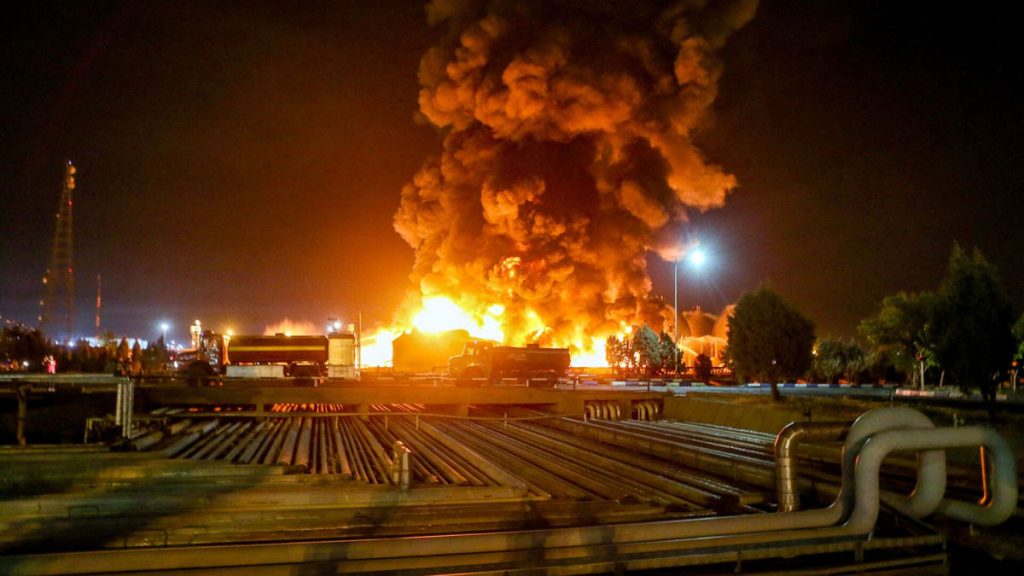
Axios admits that the Israeli retaliation could target oil production facilities in Iran, and possibly involves pinpoint eliminations of the Iranian leadership. The Wall Street Journal (WSJ) sources even allow for an attack on Iranian nuclear facilities – both a missile strike and a possible cyberattack. In April, Israel has already made it clear that it might strike the Fordow nuclear centre and defence facilities in Isfahan. Meanwhile, the Joe Biden administration, as WSJ writes, is strongly opposed to such a scenario and is trying to dissuade Israel from a large-scale retaliation and strike on nuclear facilities.
Therefore, it is unlikely that the US will agree on strikes on nuclear facilities, which is confirmed by the Financial Times (FT) quoting US President Joseph Biden, who has already spoken out against such a scenario. Although some Israeli officials have called for such a retaliatory strike. Today, however, such an option, as the FT notes, is not being considered. According to the publication’s insider information, Israel is weighing several response options, including strikes on ballistic missile launchers or oil infrastructure.
An oil strike could do far more damage to Iran, bringing it to its knees by smashing the country’s entire oil and gas infrastructure, leading to economic collapse. The US and other Western allies are still urging Israel to focus specifically on military objectives. Since strikes on the Islamic Republic’s oil and gas facilities could trigger a surge in energy prices, which is disadvantageous to the Democrats, Biden’s team, on the eve of the elections.
Politico reports that Iranian facilities in Yemen or Syria are among the options being considered for Israel’s response. That’s the option that would suit the Biden administration best. ‘They (Israel) have the right to respond, but they should respond proportionately,’ Joe Biden said after a conversation with G7 leaders where sanctions against Iran were discussed. Deputy Secretary of State Kurt Campbell said there were ‘real concerns about a larger escalation and its continuation that would jeopardise not only Israel but our strategic interests.’
However, the Americans themselves recognise that their influence over Israel may be limited, as Netanyahu has often acted with little regard for the White House in recent times, showing the negligible limits of Biden’s influence over Israel. And with Iranian missiles over Tel Aviv, it’s much harder for Washington to influence his actions, and harder for the prime minister’s opponents to call for his resignation. All the more so, as the FT notes, against the background of Israel’s military operations in Lebanon and Iran, the rating of the Israeli prime minister has increased. Thus, the polls of the last two weeks show that Netanyahu’s party ‘Likud’ can win the new elections to the parliament of Israel, winning from 20 to 25 seats. In total, there are 120 seats in Israel’s Knesset parliament. That’s a maximum compared to a low point of 16 seats for several months since the Gaza conflict began. All of this gives Netanyahu increasing confidence and determination to strike back, which could be either symmetrical or asymmetrical.
The Iranian regime (particularly the IRGC) feels pressure to show its regional proxies and allies, from Hezbollah to the Houthis in Yemen, that it is not a weakling but a regional power, the leader of an ‘axis of resistance.’ Especially since Israel’s relentless war against its regional enemies, first Hamas and then Hezbollah, only adds urgency to the Iranian hawks’ argument that only nuclear weapons can keep the country safe and strong. And the fear that these arguments might win over Tehran will only fuel calls in Israel for preventive war.
In an attempt to ease tensions, Saudi Foreign Minister Prince Faisal bin Farhan and Iranian President Massoud Pezeshkian met in Qatar. Pezeshkian sought assurances from Gulf leaders at the Doha summit that they would remain neutral in the event of any joint Israeli and US attack on Iran. Saudi Foreign Minister Prince Faisal bin Farhan said, ‘We intend to close the book of differences with Iran for good and develop relations between us as between two friends.’ His remarks underscored recent Saudi assurances that there will be no agreement to normalise relations between Riyadh and Israel without Israel’s consent to the establishment of a Palestinian state. Pezeshkian also met with Qatar’s ruler Sheikh Tamim bin Hamad Al-Thani. At their joint press conference, Sheikh Tamim bin Hamad Al Thani said the crisis in the Middle East is a ‘collective genocide’ and that his country has always warned of Israel’s ‘impunity’.
‘It has become very clear that what is happening is genocide, in addition to turning the Gaza Strip into an area unfit for human habitation in preparation for displacement,’ he said during the Asian Cooperation Dialogue summit in Doha. The Qatari emir also reiterated his country’s ‘full support’ for Lebanon in dealing with the ‘brutal attacks they are subjected to’. In an X message, he said the international community’s failure to stop the war in the Gaza Strip had become a green light for the conflict to widen.
And while the world is frozen in anxious anticipation of Israel’s response, the latter continues to strike Beirut.
The price of ‘black gold’
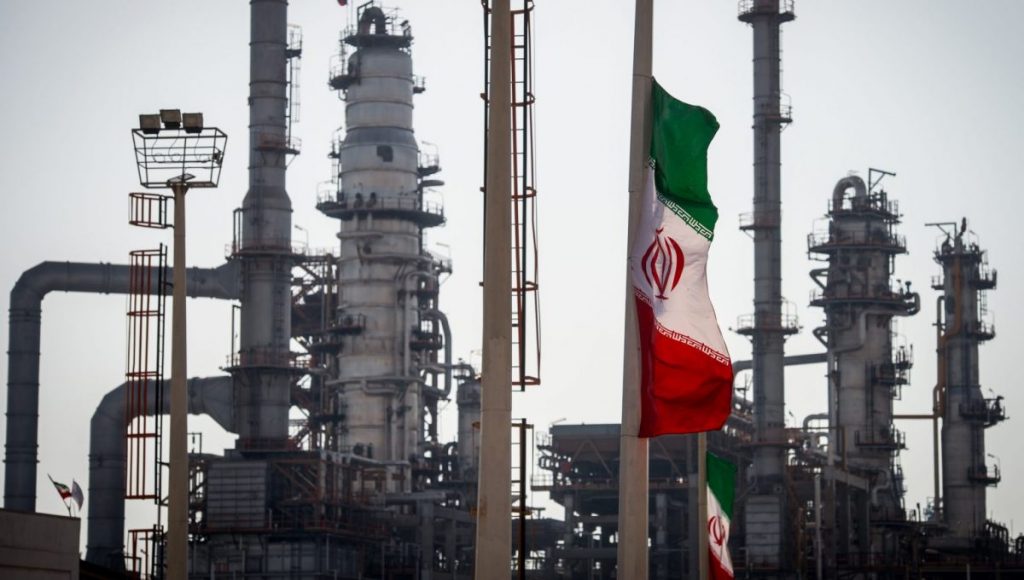
However, not only in the world political community, but also in the world oil markets are anxiously awaiting a possible escalation of the conflict in the Middle East. The Middle East conflict is one of the most significant threats to oil supplies since Russia’s aggression against Ukraine, which then stirred up oil markets. The risk of escalating conflict between Israel and Iran is testing the global market’s belief that crude oil prices will be protected from expanding hostilities in the Middle East.
The fact is that over the past three months, oil prices have been falling due to weakening demand. Rising oil production in the US, Brazil and elsewhere over the past two decades has diversified the world’s fuel supply, meaning oil markets are less reliant on supplies from the Middle East. However, if Tel Aviv hits Tehran’s oil and Tehran hits the oil of neighbouring countries, it is guaranteed to affect the supply-demand imbalance for black gold in many parts of the world.
Already, after Iran fired some 200 missiles at Israel, global oil prices began to rise due to the risks of supply disruptions in a region that accounts for a third of the world’s crude oil production. Adding to the anxious anticipation was Tel Aviv’s announcement that it had, according to The Wall Street Journal, warned Tehran ‘of its intention to respond to any shelling of its territory and directly strike nuclear or oil facilities.’ Such a message specifically emphasised that ‘the response will be made regardless of the power of Iranian shelling or the number of dead in Israel.
Iran, in turn, threatened the following response in the form of bombing oil facilities of neighbouring countries, including Saudi Arabia. Recall that in 2019, a drone attack by Iranian proxies on Saudi oil refinery facilities briefly knocked out 50 per cent of the kingdom’s oil production. And while Saudi Arabia and Iran have moved toward rapprochement recently, relations between the countries remain strained.
The global oil market reacted lightning fast to the Iranian strike on Israel. Prices for Brent crude oil soared by 5%, and on the New York Mercantile Exchange futures for WTI with delivery in November began trading at $70.08 per barrel (up 2.80%). On 2 October, prices continued to rise, with Brent hitting $76 during trading. ‘While the short-term market panic appears to have subsided, nervous trading is likely to continue over the next few days until more is known,’ Dennis Kissler, senior vice president of trading at FOC Financial Securities, told Bloomberg.
Reuters also calmed the market: analysts interviewed by it say that OPEC’s reserve capacity (5.86 million bpd) will cover the fallout of Iranian production and even more so exports, which the agency estimates at 1.7 million bpd. For example, Saudi Arabia is able to increase production by 3 million bpd, and the UAE – by 1.4 million.
Therefore, most experts agree that oil prices can now be seriously affected only by the expansion of the confrontation, the involvement of other countries, as well as actions that directly affect oil production in the region or global oil trade. For example, an Israeli retaliatory strike on Iran’s oil infrastructure or Tehran’s closure of the Strait of Hormuz, the gateway from the Persian Gulf to the Indian Ocean, which carries about 20 per cent of the world’s oil production and, just as importantly, 20 per cent of all liquefied natural gas (LNG) every day.
If the conflict escalates and the Strait of Hormuz is blocked, gas prices could also rise. As a consequence, nitrogen fertilisers will become more expensive. And this may cause an increase in food prices. In a certain scenario, we cannot rule out the suspension of the Suez Canal, for example (up to 15% of all world trade through the sea). In such a case, we will see an increase in the price of most goods in the world trade due to higher logistics costs, longer routes bypassing Africa, shortage of ships, and delivery time. Add to this the approaching winter holidays, when the demand for goods increases. In any of the negative scenarios, no speculative price restraint will help.
In this situation, the position of the US is understandable, for which the growth of oil prices is clearly not favourable. Firstly, it accelerates inflation, and secondly, they need to replenish their strategic oil reserves, sold out in recent years. That is why the US is very much opposed to direct involvement in this conflict, which Israel is stubbornly seeking. And paradoxically, here the interests of the current US and Iranian authorities coincide. Tehran is also not eager to escalate the conflict, and the US understands perfectly well that Iran’s blocking of the Strait of Hormuz, problems with oil transport in the region or with oil exports from Iran would be a perfect gift for the Republican Party candidate Donald Trump. It will be such a ‘black swan’ that, as they say, it will not be a small matter. Oil prices, followed by petrol prices, will soar. And Trump will be able to say in his usual manner: ‘this is the result of the idiocy of the current administration, which is setting the world on fire, and as a result we get a “hole from a bagel”’.
Biden’s approach to the press on 3 October was a good illustration of this. Asked by a reporter about the possibility of an Israeli strike on Iranian oil facilities, Biden replied, ‘We’re discussing it. I think it would be a little bit … either way,’ interrupting half a word. Minutes later, the price of oil hit its highest level in a month, with Brent crude jumping 5 per cent to a high of $77.65 (£59.19) a barrel. Therefore, any prolonged price hike that would increase the cost of petrol at US petrol stations (which would almost certainly happen in the event of a real Israeli attack on the Iranian oil industry) would damage Harris in an extremely tight presidential race with Donald Trump, and most likely put an end to her presidential ambitions.
On the other hand, already after the missile attack, the US announced that it was going to tighten sanctions against Iran. In this case, no details have been given so far. Although Iran’s oil exports are already banned. So, the new sanctions do not really bother it. After all, there are countries that do not comply with it. For example, its main buyer is China. Although, most often, it does not import Iranian oil openly, but acts through intermediary companies registered in Singapore, UAE and other countries.
However, how oil quotations will behave in the future will depend, in addition to the development of the conflict in the Middle East, on several other factors. Firstly, on the actions of the OPEC+ alliance. Earlier, the organisation agreed to increase joint production by 180,000 bpd from December as part of its plan to increase supply in 2025. OPEC+ is under pressure from declining market share and profitability amid rising US production and falling oil prices. Meanwhile, voluntary production cuts have not been fully honoured by member countries, with nations such as Iran and Kazakhstan failing to meet their commitments. These countries have reallocated supply and pledged to compensate by cutting 123,000 barrels per day in September and October. Until these compensatory cuts are met, OPEC+ is unlikely to raise production. However, the current situation also emphasises that Iran plays a crucial role in shaping oil market trends.
In addition, it is not yet clear whether the strikes of port workers on the US Atlantic coast will affect the quotations. This may indirectly affect global fuel supply chains. Data on oil and fuel stocks in the US will also have an impact. The latest statistics from the American Petroleum Institute (API) turned out to be ambiguous: crude oil and distillate stocks fell last week, while petrol stocks rose. According to analysts at Freedom Finance Global, despite geopolitical tensions, the impact of Middle East events on long-term oil prices remains limited. Unexpectedly, oil could receive support from China. Its recent policy measures could also improve the demand outlook.
Most recently, the People’s Bank of China (PBOC) announced a 0.5 per cent reduction in the reserve requirement ratio (RRR), which was accompanied by a cut in key interest rates. China has also implemented a series of policy easing measures to support the housing sector and stock markets. Euronews quotes analyst Josh Gilbert who believes: ‘…China’s stimulus package is also an important factor. If there is a perception that the world’s second largest economy will boost demand at a time when supply may be constrained, it will be a tailwind for crude oil prices.’ By remaining the largest oil exporter, China can thus support oil prices.
Yet any further escalation of geopolitical tensions could push oil prices back up again, complicating the outlook for global inflation.
The Middle East and its impact on the US election
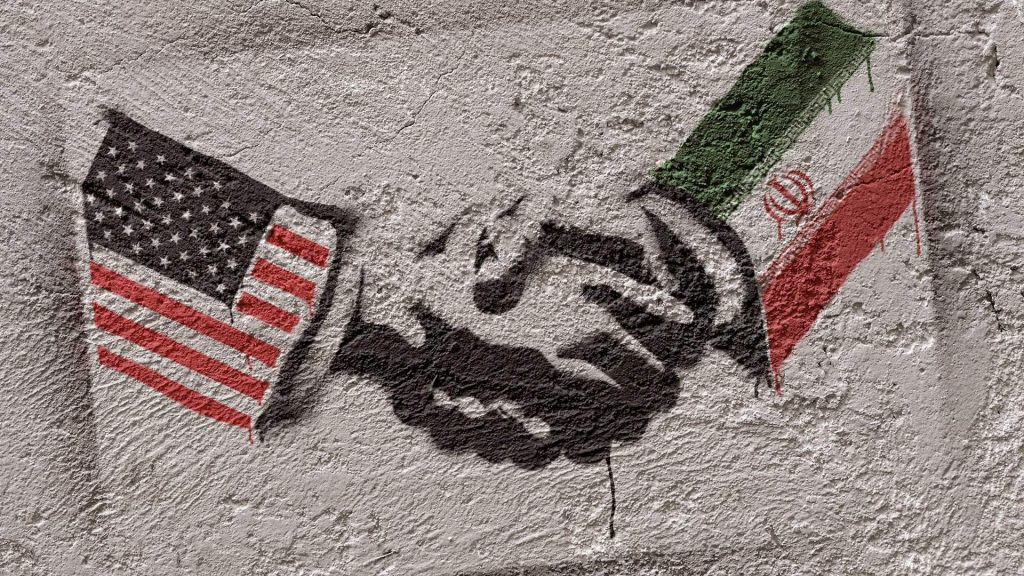
Israel’s confrontation with Iran and its allies is echoed in the race for the US presidency. It is, in fact, the only foreign policy issue that is of vital concern to American voters and could influence the outcome of the race for the White House. Iran’s massive missile attack on Israel on 1 October once again demonstrated this peculiarity of the presidential campaign-2024 and reminded why the Democrats are so desperately fighting for an early cessation of hostilities in the Middle East, while the Republicans are urging Israel not to stop in any case and to go all the way.
Iran’s missile attack on Israel on 1 October provoked a reaction of unequivocal indignation and condemnation in the West. Naturally, the United States, Israel’s key ally, was not left out. Jake Sullivan, the American president’s national security adviser, threatened Iran with ‘serious consequences’. Perhaps no one expected otherwise. The violent reaction to the Iranian attack by both Democrats and Republicans was not so much a reflection of the US commitment to its allied duty, but rather emphasised the special significance of the Middle East issue for US foreign policy.
Back when Joe Biden was a presidential candidate, the fighting in the Gaza Strip became a real headache for him. He was torn between the demands of part of his electorate to support Israel and the left-liberal voters, as well as the Arab diaspora expressing sympathy for the Palestinians. As a result, Biden managed to attract criticism from all sides. The situation for the Democrats has improved with the entry into the campaign marathon of incumbent Vice-President Kamala Harris. The Middle East conflict began to have less influence on the preferences of voters. Biden himself did not abandon his attempts to achieve a cessation of hostilities in the region, reasonably fearing the involvement of the US and unpredictable consequences for the world economy. However, the ongoing Israeli operation in Gaza, the opening of a second front in southern Lebanon and, finally, the Iranian attack brought the Middle East issue back into the context of the presidential race.
It was quite revealing that the debate between US vice-presidential candidates Democrat Tim Walz and Republican James David Vance started not with the main topics of the American agenda – economy, health care, abortion and migration – but with the situation in the Middle East. Walz and Vance were asked if they would be willing to support a preemptive Israeli strike on Iran if they were in the White House. Neither directly answered the question posed. Walz, a Democrat, said the US needs to maintain a presence in the Middle East and support Israel, before moving on to criticise Donald Trump’s foreign policy. According to Walz, Tehran came close to developing nuclear weapons because Trump was a ‘hesitant head of state’ who pulled out of the 2018 Iran nuclear deal and encouraged Tehran’s progress in this area. At the end of his response, Walz repeated Harris’ pledge of support for Israel.
Vance countered: in his view, Trump has, on the contrary, made the world ‘more stable and safer’ because he has brought stability to the world through ‘effective deterrents.’ In his view, the U.S. should support allies when they are ‘fighting the bad guys.’ At the end of the debate, CBS News viewers’ opinion on which politician performed better on the Middle East conflict was evenly split at 50 per cent each. According to experts, J.D. Vance did not fully seize his chance to smash his opponent on this issue, which turned out to be the only foreign policy issue at the debate.
But it was Donald Trump himself who began to finish off the Democrats, lashing out at Kamala Harris and Joe Biden. ‘Two incompetent people running our country – and I don’t think they’re running it at all – are leading us to the brink of World War III,’ the former president said. In his view, the Biden-Harris administration’s foreign policy has caused enemies to stop respecting the United States, and his White House rivals have ‘flooded’ Iran with ‘American cash,’ allowing Tehran to finance various groups fighting Israel. Republican House Speaker Mike Johnson has also joined the attacks, accusing the current president and vice president of duplicity. He believes that the administration is publicly expressing support for Israel’s right to self-defence, while at the same time ‘appeasing the Iranian regime with billions or hundreds of billions of dollars … through sanctions relief’.
It’s worth noting that there was little new in the Republicans’ rhetoric. Although a few months ago, while criticising the administration for its approach to the war in the Middle East, Donald Trump’s supporters and allies seemed unaware of the existence of Kamala Harris, blaming all Washington’s mistakes on Biden. However, after the change of candidates, they tried to shift responsibility to Mrs Harris without much success. Her ‘Teflon-ness’ in this matter led to the fact that the Republicans’ stamps did not “stick” to her. But the Iranian strike on Israel, which attracted enormous voter attention, gave Republicans new opportunities. Part of the reason Republicans were unable to link current U.S. Middle East policy to Kamala Harris and portray her as a leader willing to betray the closest U.S. ally outside NATO was the Democrat’s own merit.
Despite her image as a left-liberal politician, all this time she managed to distance herself from the Middle East issue, and when the situation did not allow it, Harris tried not to fall into the ‘traps’ in which Joe Biden found himself, who simultaneously expressed support for Israel and criticised it. Mrs Harris called the Iranian attack ‘reckless and brazen’ and assured: ‘I will always ensure Israel can defend itself against Iran and the terrorist entities it supports. My commitment to Israel’s security is unwavering.’
Apparently, Ms Harris’s reaction was largely what led Mike Johnson to criticise not her statement itself, but ‘hypocrisy’. Most likely, the attacks on Kamala Harris in connection with the situation in the Middle East will continue, because, despite her attempts to distance herself from the issue, a month before the election this war seems to be fully entrenched in the domestic American agenda. The Democrats’ strategy on the Iran-Israel conflict of not irritating either Israel supporters or Palestinian sympathisers might have helped at a time of relatively sluggish conflict, but not at a time of apparent escalation. Iran’s strike on Israel, however, has put Harris in a stretch. Some voters will chide her for not doing enough to help Israel, others for not doing enough to help Gaza. And that without a doubt puts her in an obviously lose-lose situation.
The bottom line is that escalating war in the Middle East, reduces the Democrats’ chances of winning the autumn election and, conversely, increases Trump’s chances. At the same time, a peace agreement in the Middle East before November could add significantly to Harris’ electoral piggy bank, and would reduce Trump’s chances. Most likely, however, no peace agreement – not going to happen.
A hypothetical Harris victory would carry significant risks for Netanyahu’s political course and give Iran a chance for a new Obama-style nuclear deal. For Iran, this is the ideal situation: easing sanctions, unlocking reserves and covertly promoting a nuclear programme under the guise of developing nuclear power.
Perhaps, even now, Iran would be better off requesting negotiations on a nuclear deal in the hope of Biden-Harris peacemakers. Or at least pretend that it wants to resume dialogue, achieve a pause and save face. Regroup, call on friends from the UN for help. Especially the reformist president Masoud Pezeshkian has literally just tried to appear as a constructive and respectable politician, a victim of Zionists and American imperialists. Meanwhile, it looks very much like big deals are history. But let’s not get ahead of ourselves, just in case.
For Netanyahu, such negotiations are a collapse of his political course of forceful reformatting of the regional security system. Therefore, Netanyahu is likely to take the path of further escalation. And this will surely play into the hands of Trump, who will benefit from the situation in the Middle East reaching the maximum level of aggravation. It will show yet another geopolitical failure by Biden and Harris’ potential inability to address the issue once elected.
Before the missile strike on Israel, Tehran’s tolerance and restraint essentially saved the Biden-Harris Middle East strategy from collapse, but it did so, understandably, in its own interests and for a short time: its goal is to build nuclear weapons. Now, after Iran’s missile strike, the whole world is waiting to see what Israel’s response will be. IDF spokesman Rear Admiral Daniel Hagari noted that Iran’s attack on Israel ‘will have consequences.’ But what and how they will affect the situation in the world, oil prices and whether they will become, as the FT writes ‘October surprise’, which could change the election race in the United States in favour of Trump, we will see in the near future.

